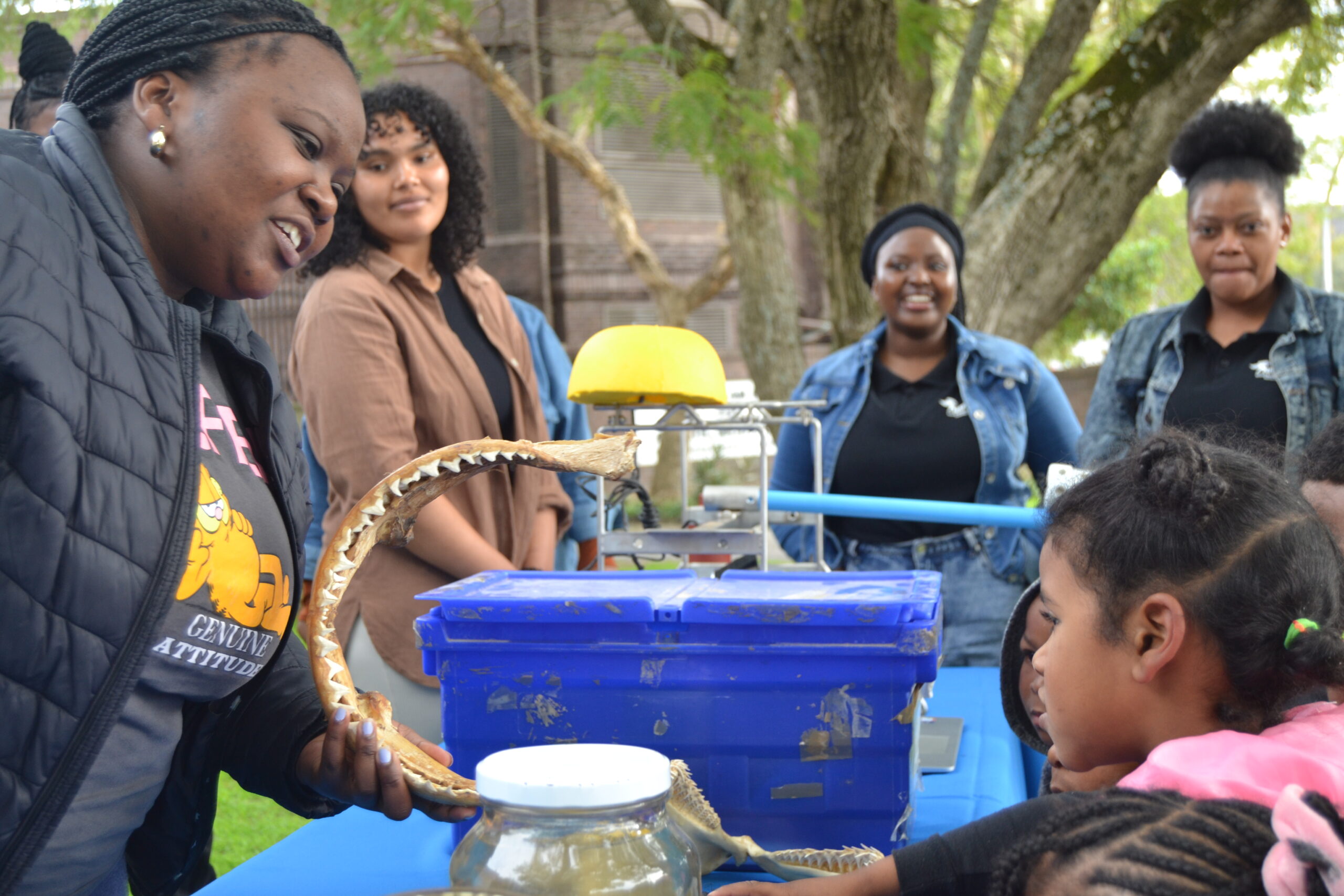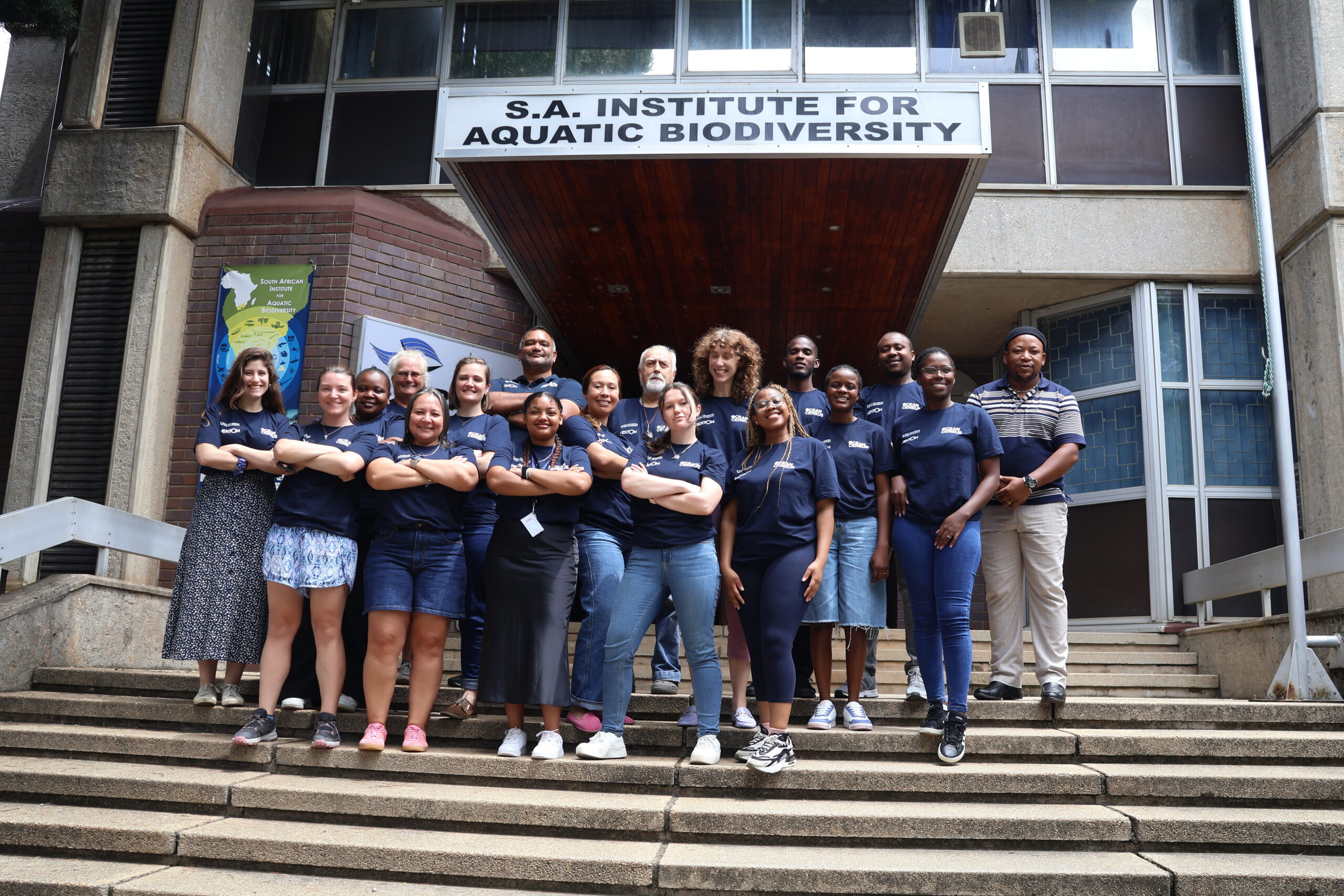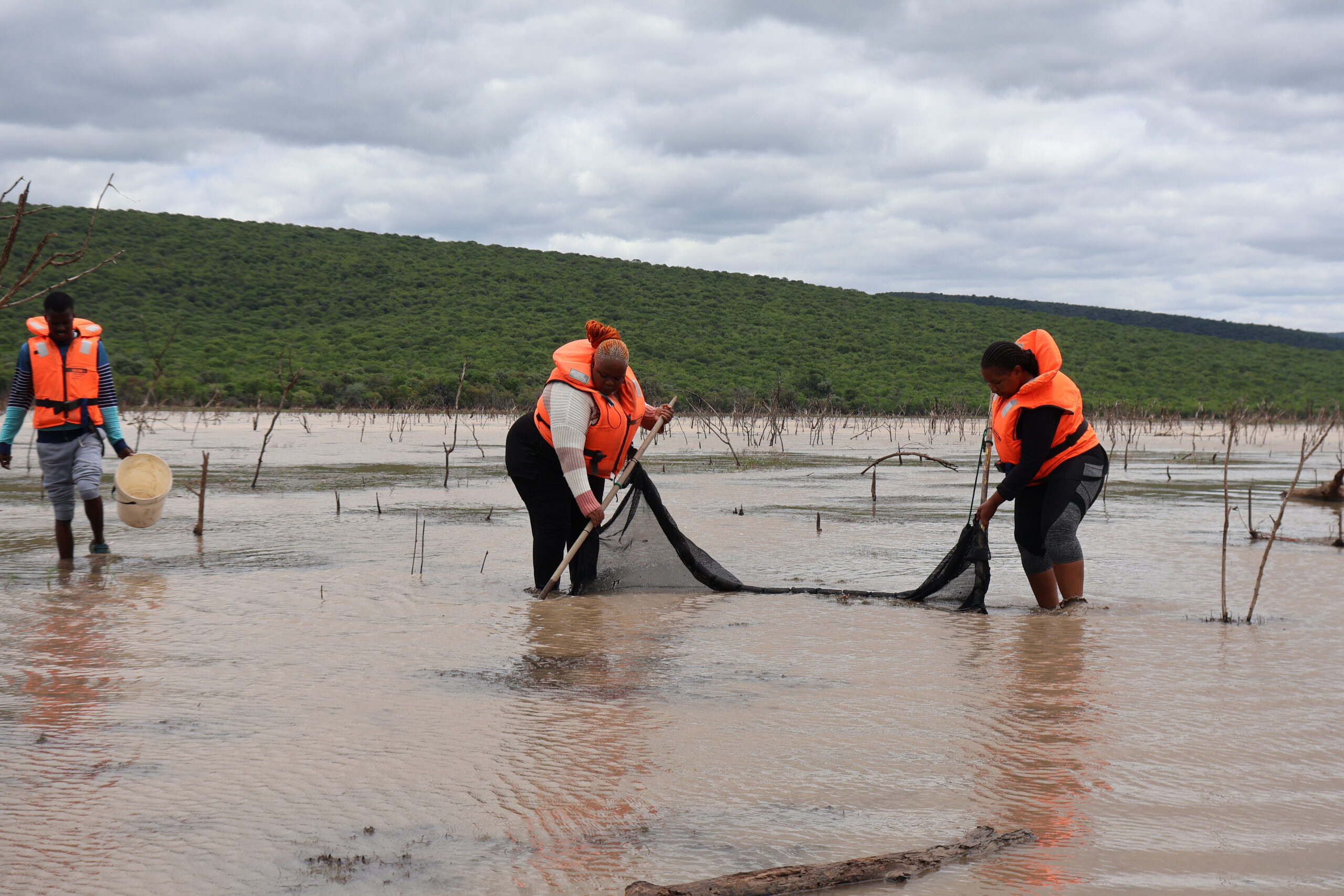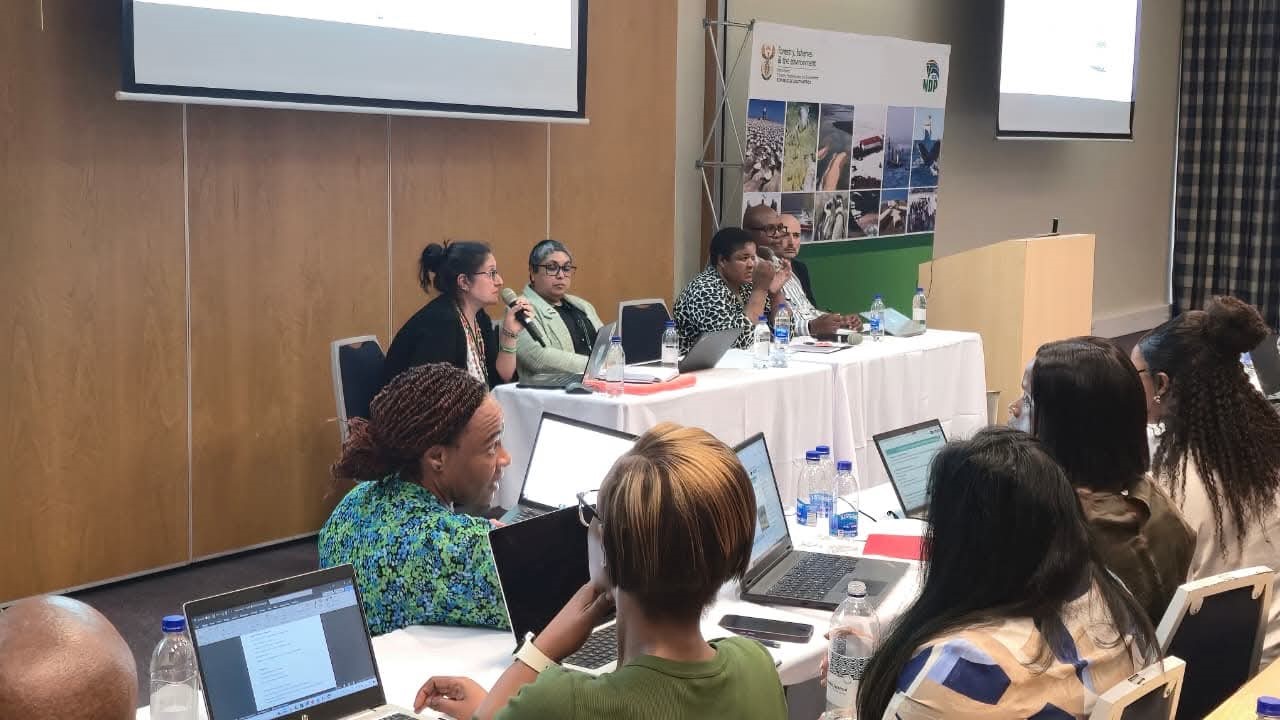The NRF-SAIAB (South African Institute for Aquatic Biodiversity), in collaboration with Rhodes University’s Department of Ichthyology and Fisheries Science (DIFS), hosted a pop-up science exhibition for Makhanda residents outside the institution in Somerset Street on Friday, 04 August 2023. The exhibition was part of the institute’s initiative for National Science Week.
National Science Week is an annual initiative to exhibit and communicate awareness in science through communicating science to people outside the profession, this year’s science week took place from 31 July to 05 July 2023 under the theme, “Transforming lives through the evidence-based science”. The two branches of science that are observed or emphasized under this theme are energy (building sustainable electricity) and agriculture. To stick with the agriculture component, NRF-SAIAB decided to explore and create awareness on Aquaponics.
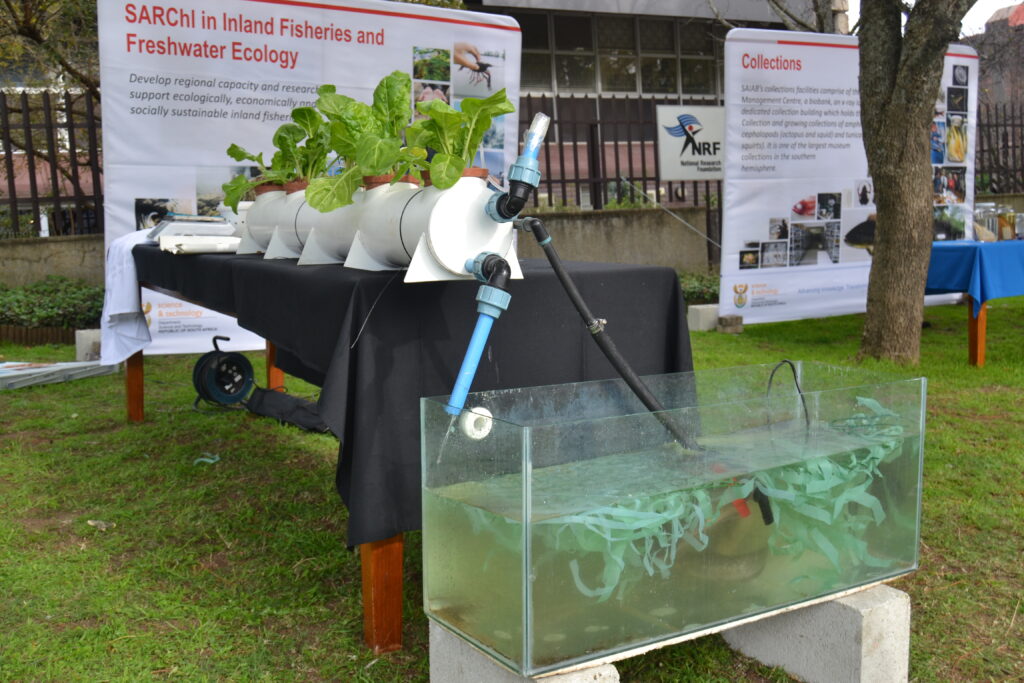
Aquaponics is an innovative and sustainable farming method that combines aquaculture (fish farming) with hydroponics (soilless plant cultivation). In this system, fish and plants work together in a mutually beneficial manner. The process begins with fish being raised in a tank or pond, where they produce waste in the form of ammonia-rich water through their “poop”. The waste becomes a valuable resource for the plants as it is absorbed as nutrients for growth. As the plants absorb these nutrients, they purify the water, removing harmful substances for the fish. To complete the loop, clean and oxygen-rich water is cycled back to the fish tank.
Some of the benefits of this system include using 90% less water than traditional soil-based farming methods, no need for unnatural fertilisers or pesticides and this reduces the risk of water and soil contamination and scalability, aquaponics can be done from small home setups to large operations. Leafy greens and herbs like mint, parsley, thyme and sage are some of the nutrient-dense foods that can grow through this system.
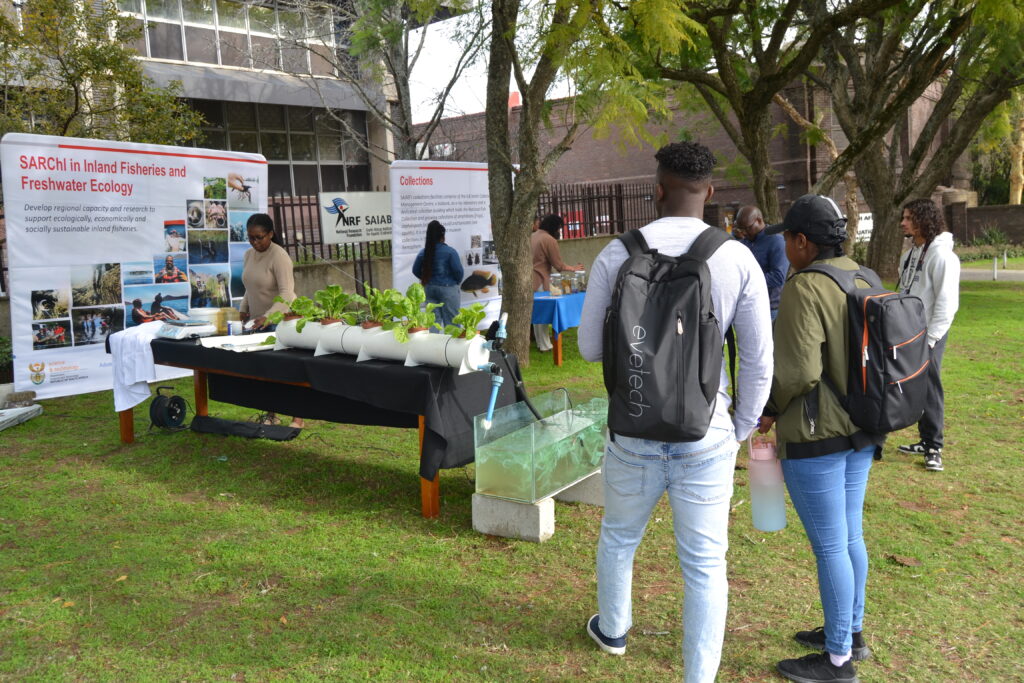
The pop-up science exhibition was the perfect opportunity to introduce this innovative and sustainable method of farming while showcasing the work that is done by SAIAB scientists to the Makhanda public. The exhibition also attracted a diverse audience from pre-school learners, young adults, parents to senior citizens.
